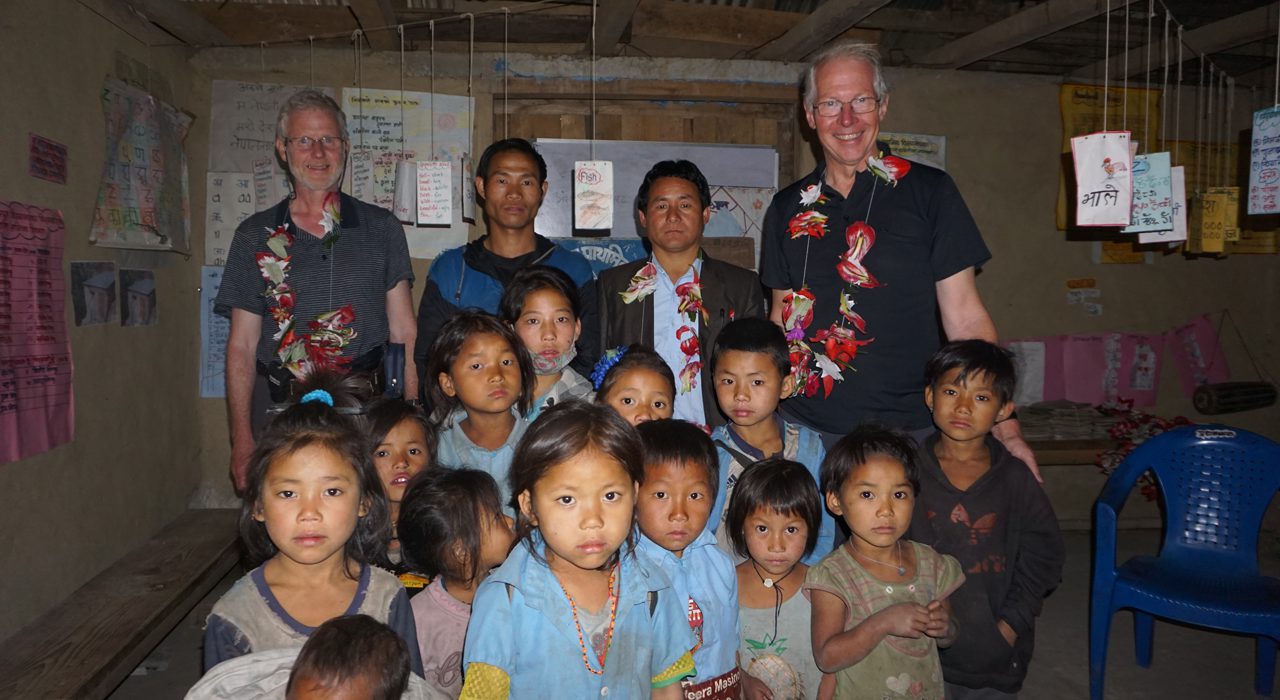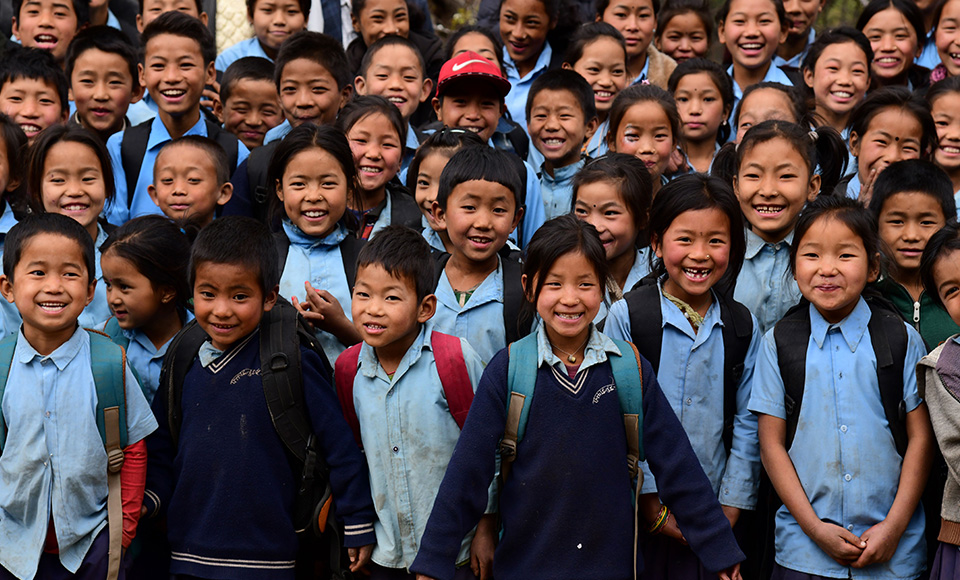During April three trustees, John Walton, Tim Keyes and Kate Keohane, along with seven retired teachers and health professionals, travelled to Nepal to spend three weeks trekking around the Taplejung region, visiting schools and clinics along the way. Their aim was to assess the work being done to provide quality education and health. In addition, it was an opportunity to see the additional works of the trust and the outcome of the “Build Back Better” programme following the 2015 earthquake, the supply of fresh water to a number of schools and the progress with the building of Yamphudin Health Post.
We are pleased to say that every school has made significant improvements as they embrace the ethos of HTUK and our NGO partner, REED Nepal, with stimulating teaching in child friendly environments, which is having a positive effect on learning achievement levels. The new classrooms that we have built are not only safe but make excellent use of natural light; they are clean, airy and pleasant spaces for children to learn in. All schools in our working area are now supplied with fresh water.
While we were there we were able to supply funds, in part, for all 2100 children in our 29 schools to have a lunch box, which will hopefully encourage parents to provide some refreshment during the school day.

Yamphudin Health Post is on schedule and the roof should be in place before the monsoon rains hit the region. This is going to be a fantastic facility for this very remote community and the fact that we have included a birthing centre and trained two local women to work there, will hopefully mean that there will be no more deaths of mothers in labour.
When we visited Lelep Health Post we learned that it still did not have a water supply. The group provided the funds from their trek kitty to allow them to purchase sufficient piping to bring water to the post.
Our visit was timed well, for there have been significant political changes in Nepal in recent months and we were joined at various stages of our trip by the District Education Officer, the Chairman of the new Rural Municipality and the Deputy Chairman and Deputy Director of the Social Welfare Council from Kathmandu. All appreciate our work in the region and would like to see it expand to other poorly served, remote areas.





